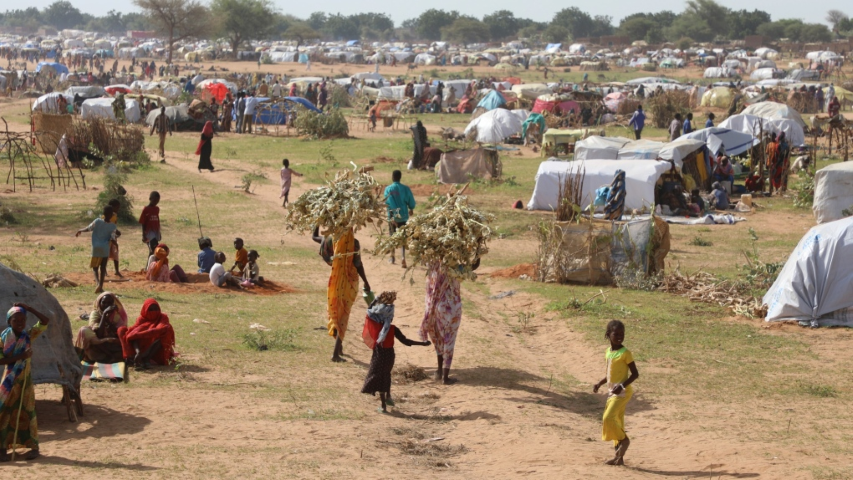
On July 1, 2023, Sudanese refugees, who escaped the turmoil in Sudan, assembled at the Zabout refugee camp in Goz Beida, Chad. This gathering was captured by Marie-Helena Laurent and shared via AP.
In the strife-ridden West Darfur region of Sudan, between 10,000 and 15,000 lives were lost in El Geneina last year due to ethnic violence perpetrated by the paramilitary Rapid Support Forces (RSF) and allied Arab militia, as revealed in a United Nations report disclosed to Reuters on Friday.
The report, submitted to the UN Security Council by independent UN sanctions monitors, relied on intelligence sources to estimate the toll in El Geneina. This figure was contrasted with the UN's overall estimate of approximately 12,000 fatalities across Sudan since the outbreak of conflict on April 15, 2024, between the Sudanese army and the RSF.
The monitors, shedding light on the situation, also labelled accusations against the United Arab Emirates (UAE) as "credible." The UAE was alleged to have provided military support to the RSF regularly through Amdjarass in northern Chad. A Sudanese general had previously accused the UAE of supporting the RSF's war efforts in November.
In response, the UAE submitted a letter to the monitors, asserting that 122 humanitarian aid flights were sent to Amdjarass to assist Sudanese refugees escaping the conflict. According to the United Nations, around 500,000 individuals have fled Sudan, seeking refuge in eastern Chad, situated several hundred kilometres south of Amdjarass.
The monitors' report, covering the period between April and June of the previous year, detailed the RSF and its allies' targeted violence against the ethnic African Masalit tribe in El Geneina, potentially constituting war crimes and crimes against humanity.
Survivors interviewed by Reuters in the past year recounted horrific scenes of ethnically driven violence in West Darfur. The monitors' report echoed these accounts, describing incidents where individuals, identified as Masalit, were summarily executed with a shot to the head, while others were subject to harassment, robbery, and physical assault.
The report also highlighted the RSF's takeover of Darfur, citing support from Arab allied communities, intricate financial networks, and new military supply lines through Chad, Libya, and South Sudan.
The monitors emphasized the RSF's utilization of complex financial networks, established both before and during the war, to fund its operations, acquire weapons, and gain support from political and armed groups. Additionally, the RSF redirected gold previously exported to the UAE, smuggling it to Egypt since the war began.
The RSF's enhanced firepower significantly shifted the balance of forces, allowing it to seize control of Wad Madani, a major Sudanese city, and consolidate its hold on Darfur.
In December, the United States officially declared war crimes committed by warring parties in Sudan, with the RSF and allied militias accused of crimes against humanity and ethnic cleansing. The conflict has resulted in nearly half of Sudan's population requiring aid, over 7.5 million people displaced, and a growing hunger crisis.
Despite numerous mediation attempts, the entrenched positions of warring parties and competing regional interests have hindered peace efforts, leaving the war ongoing and exacerbating the humanitarian crisis.















